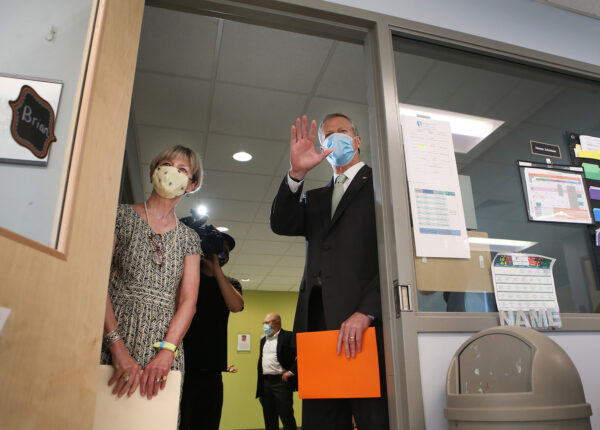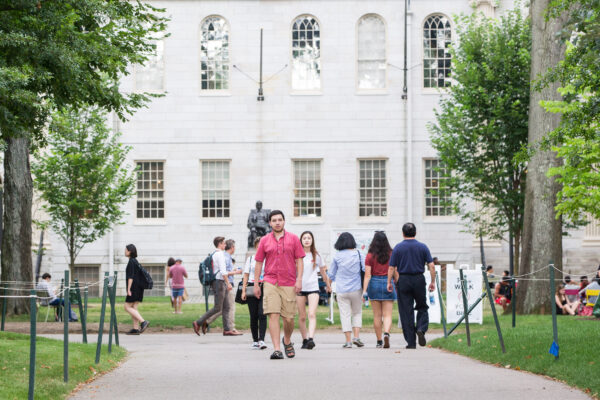WASHINGTON—Massachusetts public health officials are now requiring all children to get a flu vaccine if they’re attending child care, preschool, kindergarten, K-12, and colleges and universities.
The rule, announced Aug. 19, applies to children aged 6 months and older.
“The new vaccine requirement is an important step to reduce flu-related illness and the overall impact of respiratory illness during the COVID-19 pandemic,” the public health department stated.
The flu vaccine can reduce the risk of serious illness by 40 percent to 60 percent during seasons when the vaccine is well-matched to most of the circulating viruses, the Centers for Disease Control and Prevention (CDC) says.
“During years when the flu vaccine is not well-matched to circulating influenza viruses, it is possible that little or no benefit from flu vaccination may be observed,” the agency states on its website.
Homeschooled students are exempt from the new rule, as are higher education students who are completely off-campus and engaged in remote learning only. Elementary and secondary students in online-only classes aren’t exempt.
Some exemptions for medical or religious reasons are provided. In the case of a medical exemption, a doctor must document why an individual can’t medically receive the vaccine. Religious exemptions come from the parent/guardian and must state in writing that a vaccine conflicts with a sincerely held religious belief, the health department guidelines state.
The average rate of medical and religious exemptions for vaccines among kindergartners in Massachusetts currently sits at 1.3 percent, according to public health data. The rate of students that don’t meet school requirements is about 2.8 percent for the state, but varies from county to county.
“Areas with higher exemption rates may be more susceptible to disease outbreaks because these students are not fully protected,” the public health department warns on its website.
Students are expected to have had the flu injection by Dec. 31, in addition to the existing vaccine requirements to attend school in the state. The new requirement is annual.
“Depending on the child’s age and flu vaccination history, a second dose of flu vaccine in the same season may be recommended,” the public health department states.

Dr. Larry Madoff, medical director for the state Department of Public Health’s Bureau of Infectious Disease and Laboratory Sciences, said in a statement, “It is more important now than ever to get a flu vaccine because flu symptoms are very similar to those of COVID-19 and preventing the flu will save lives and preserve healthcare resources.”
Meanwhile, the CDC said it receives about 30,000 vaccine injury reports each year. The reporting system is voluntary and studies estimate it captures a small percentage of all adverse effects in most cases.
The majority of reports are for mild side effects, but the CDC says 10 percent to 15 percent of the adverse reactions include permanent disability, hospitalization, life-threatening illness, or death.
Massachusetts also is adding a requirement for students to get the meningococcal vaccine in the 2020–2021 school year.
Mandatory Vaccines
All states already have some sort of mandatory vaccination schedule for children to attend school, as well as varying degrees of exemption accessibility. California, New York, Missouri, West Virginia, and Maine only provide exemptions on medical grounds.
Many states also have the authority to mandate a vaccine on their populations during a public health emergency or outbreak of a communicable disease. Generally, that power is held by the governor or state health officer.
In 2019, in New York, during a measles outbreak, government officials overrode the religious exemption provision and applied forced vaccinations in specific ZIP codes on all children over 6 months of age and adults who didn’t have a medical exemption or vaccine record on file.
The measles outbreak was “in the thousands of cases, [but] it was certainly not throughout the whole state—no child died, a handful were hospitalized,” Mary Holland told The Epoch Times in a previous interview. “There was not a single debate in the legislature—it was simply repealed without a single hearing.”
Holland is the general counsel for Children’s Health Defense, an organization founded by Robert F. Kennedy Jr. that has fought against the elimination of exemptions for mandatory vaccinations for children, especially those who are medically fragile.
The Supreme Court decision used as precedent in most mandatory vaccination cases today is the 1905 Jacobson v. Massachusetts case. In that case, the Supreme Court upheld a smallpox vaccination mandate in Massachusetts and allowed a $5 fine to be levied on the defendant, who refused to take the vaccine.
At the same time, the court cautioned that such mandates could devolve into the abuse of police powers, but upheld the decision because vaccination decisions were made through state legislatures, which allowed citizens a democratic process.
However, since 1905, layers of federal agencies have removed citizens from the process and many states simply adopt the recommendations of the CDC or National Institutes of Health without holding hearings, she said.

Holland said she will continue to fight mandatory vaccination orders in court, including a potential one for COVID-19.
“It has never been lawful to engage in forced vaccination, or to engage in de facto social exclusion and internal exile of people who aren’t vaccinated, depriving them of the ability to go to school, or to go to workplaces, or to get on a bus, or to get on an airplane. To me, that is a gross violation of the U.S. Constitution,” she said.
“I think if people get full information, and it’s voluntary, and it honors the bedrock requirement of ethical medicine of prior free and informed consent, I have no objection. … I have zero objection to that—that is an individual’s right to make that choice.”


All the more reason to home school. This mandating of vaccines is a dangerous. It seems to me that states are paving the way for a mandatory covid vaccine. Time to wake up people, soon there will not be much choice